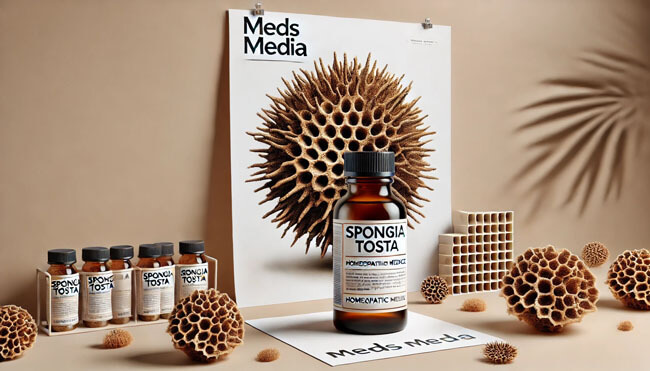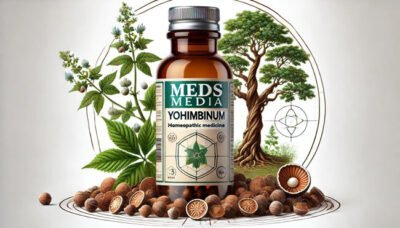
Yucca Filamentosa, a native North American plant often referred to as “Adam’s Needle,” is utilized in homeopathy for various digestive and hepatic disturbances, as well as skin issues and emotional imbalances. When considering its homeopathic profile, we examine not only its physical and mental characteristics but also the emotional and behavioral patterns associated with its remedy. The personality traits of Yucca Filamentosa offer valuable insights into its holistic effects on the human body and mind, making it an important remedy in the Materia Medica.
Mental and Emotional Characteristics
Yucca Filamentosa exhibits a personality dominated by despondency and irritability. Individuals requiring this remedy often present with a melancholic outlook, struggling with a lack of motivation and a sense of discouragement. They may find themselves overwhelmed by their circumstances, leading to frequent bouts of frustration and impatience.
These emotional states can be aggravated by physical symptoms, particularly digestive and hepatic distress. The irritability may manifest in reactions toward others, leading to social withdrawal or angry outbursts. In some cases, these individuals experience a sense of being burdened by their ailments, feeling as though they cannot escape their condition, which only deepens their despondency.
Key emotional traits:
- Despondency: Persistent feelings of sadness and lack of hope.
- Irritability: Short-tempered and prone to frustration.
- Mental dullness: Difficulty in focusing or feeling mentally sharp, often coinciding with physical discomfort.
Physical Characteristics
Physically, Yucca Filamentosa is most commonly associated with digestive and hepatic issues. The remedy targets symptoms affecting the liver and digestive system, especially those linked to biliousness (an excess of bile). Symptoms include a heavy, dull ache in the liver region, particularly on the right side of the abdomen, with the pain extending through to the back.
Additionally, the face may appear yellowish, and the tongue is typically coated with a yellow film, which takes the imprint of the teeth. This indicates a state of sluggish digestion, further emphasized by complaints of a foul taste in the mouth, often described as resembling the flavor of rotten eggs. These signs point to the body’s difficulty in processing food and waste, which is central to the Yucca Filamentosa physical profile.
Common physical traits:
- Headache: Sensation as if the top of the head might “fly off,” often with pulsation in the forehead.
- Yellow tongue coating: A yellowish film on the tongue that takes the imprint of teeth.
- Abdominal pain: Deep, dull pain over the liver region, extending to the back.
- Taste of rotten eggs: A foul taste in the mouth, especially in the morning.
- Bilious stools: Yellow-brown stools with an excess of bile.
Behavioral Patterns
Individuals needing Yucca Filamentosa tend to exhibit withdrawn or irritable behavior due to their chronic discomfort. The constant battle with digestive or hepatic ailments often leads to social isolation, as they feel misunderstood or overly burdened by their condition. The irritability manifests in their interactions with others, sometimes pushing away loved ones or coworkers. This behavior is not typically rooted in deep-seated anger but rather in frustration stemming from a lack of energy and well-being.
Additionally, their physical discomfort can lead to lethargy, making it difficult for them to stay active or engaged in routine activities. This creates a pattern of avoidance and low energy, often leading them to further isolation.
Associated Diseases
Yucca Filamentosa is commonly indicated for individuals suffering from:
- Liver conditions such as jaundice, hepatic congestion, or bilious attacks.
- Digestive disturbances like chronic indigestion, flatulence, and nausea.
- Headaches with throbbing sensations, often linked to digestive issues.
- Skin conditions, including erythema or redness, which may be associated with liver dysfunction.
Furthermore, the remedy may also be beneficial for cases of gonorrhea, where there is burning and swelling of the prepuce along with redness of the urinary meatus.
Miasmatic Personality of Yucca Filamentosa
In homeopathic terms, the Yucca Filamentosa remedy is often aligned with a psoric miasm. Psora refers to a miasmatic state characterized by suppressed energy and chronic digestive disturbances. The yellowish discoloration of the skin and tongue, bilious tendencies, and a sense of sluggishness all point to the psoric nature of this remedy.
Psoric individuals often feel burdened by a chronic sense of frustration and lack of vitality, which is precisely reflected in Yucca Filamentosa’s profile. This miasmatic background ties into the despondency, irritability, and physical discomfort that define the remedy’s personality.
Conclusion
The personality of Yucca Filamentosa reflects a blend of physical and emotional imbalances that manifest prominently in digestive and hepatic issues, as well as a mental state marked by irritability and despondency. The remedy is particularly suited for individuals who are overwhelmed by their physical ailments, leading to frustration, social withdrawal, and a lack of motivation. By addressing these interconnected physical and emotional symptoms, Yucca Filamentosa offers a comprehensive therapeutic profile for those in need of its healing properties.
YUCCA FILAMENTOSA : HOMEOPATHIC MATERIA MEDICA
Why Meds Media guides are different
We focus on clear, practical explanations of homeopathic and natural health topics so you can understand remedies, symptoms, and lifestyle changes in simple language.
Meds Media is an educational resource only. Always consult a qualified doctor or homeopathic practitioner before starting, stopping, or changing any treatment.
Similar Posts You may also like
Zincum Picricum Homeopathic Medicine & Personality | Uses, Benefits & Indications
Zincum Phosphoricum Homeopathic Medicine & Personality | Uses, Benefits & Indications
Zincum Iodatum Homeopathic Medicine & Personality | Uses, Benefits & Indications
Zincum Bromatum Homeopathic Medicine & Personality | Uses, Benefits & Indications
Zea Homeopathic Medicine & Personality | Uses, Benefits & Indications
Zincum Aceticum Homeopathic Medicine & Personality | Uses, Benefits & Indications
Zincum Cyanatum Homeopathic Medicine & Personality | Uses, Benefits & Indications
Zincum Muriaticum Homeopathic Medicine & Personality | Uses, Benefits & Indications
Zincum Oxydatum Homeopathic Medicine & Personality | Uses, Benefits & Indications
Zincum Sulphuricum Homeopathic Medicine & Personality | Uses, Benefits & Indications

Phosphorus Homeopathic Medicine & Personality | Uses, Benefits & Indications
Causticum Homeopathic Medicine & Personality | Uses, Benefits & Indications

Veratrum Viride Homeopathic Medicine & Personality | Uses, Benefits & Indications

Spongia Tosta Homeopathic Medicine & Personality | Uses, Benefits & Indications

Zingiber Officinale Homeopathic Medicine & Personality | Uses, Benefits & Indications

Sulphur Homeopathic Medicine & Personality | Uses, Benefits & Indications

Tarentula Hispanica Homeopathic Medicine & Personality | Uses, Benefits & Indications


